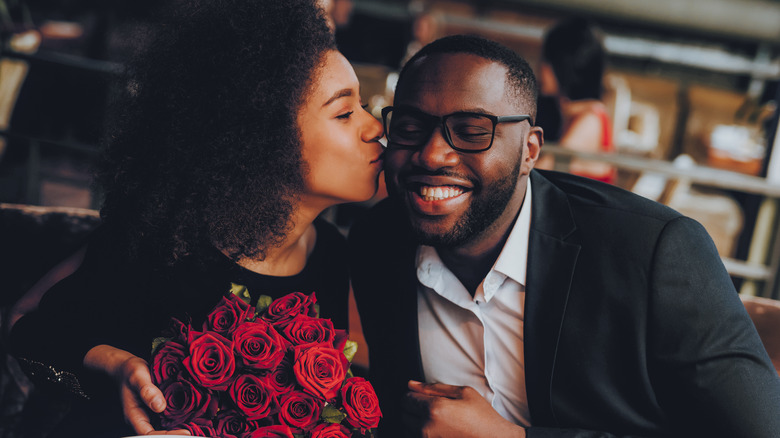
When it comes to love, it can be difficult to understand your own feelings sometimes, never mind your partner’s feelings. Navigating the complicated world of dating is tough, but understanding one key thing about yourself may help you understand what you need in relationships and how to find the people who can give you that. Here’s how to tell which attachment style you have.
Psychology Today outlined that the way we build bonds in childhood can have an impact on our emotional development and the health of our relationships in later life. Psychologist World explained that Cindy Hazan and Phillip Shaver gained a lot of attention in the 1980s as they were two of the first researchers to connect theories to do with relationship attachments in childhood to how people form bonds in adulthood. They presented a number of couples with issues that could test their relationships and deduced how many responses were based on attachment styles learned as they were growing up.
The Personal Development School explained that the four main attachment styles are fearful avoidant, dismissive avoidant, secure, and anxious preoccupied. They write that your attachment style can be one of the most influential factors in your relationships and knowing it can help you articulate your feelings to your partner and understand what you need in your romantic relationships better.
How to tell which attachment style you have

Better Help explained that your attachment style is linked to the way you bond with people, and while it usually remains the same throughout your life, it can change. Generally speaking, people who identify with the secure attachment style have little difficulty asking for help, speaking about their feelings, and are less prone to feeling jealous. They have an underlying belief that their partner will be there for them. Anxious preoccupied attachment style is characterized by anxiety that your partner doesn’t love you, worry that they’re not happy, or that they may find someone better suited to them.
People who identify with a dismissive-avoidant attachment style generally prefer to be self-reliant rather than focusing on intimacy. They may find it harder to open up about their feelings if they think it’ll get in the way of individual goals. Similarly, those who identify with a fearful-avoidant attachment style may be scared to let people in in case they let them down or hurt them.
Psychology Today wrote that if you want to establish what sort of attachment style most closely fits your personality, then you can take a really quick quiz online. You’ll be asked a series of scenario questions before finding out. You can also speak to a therapist about your attachment style and how it may affect your relationships.
Why is knowing your attachment style important?

Both friendly and romantic relationships are a two-way street, you generally get what you put in. If you don’t understand why you’re reacting a certain way to a situation, then it’s going to be really hard for your partner to understand it.
“Human beings are born helpless, so we are hardwired at birth to search for and attach to a reliable caregiver for protection,” Peter Lovenheim, author of “The Attachment Effect,“ told Mind Body Green. “The quality of that first bond — loving and stable or inconsistent or even absent — actually shapes the developing brain, influencing us throughout life in how we deal with loss and how we behave in relationships.”
Dr. Amir Levine told HuffPost that knowing your attachment style isn’t the be-all and end-all of solving all of your romantic woes. However, if you identify with the fearful-avoidant or anxious attachment style, then coupling up with someone who identifies with a secure attachment style may mean they can ease your worries, give you verbal reassurance, and talk through any fears you may have. Similarly, if you’re dismissive-avoidant, you may need a partner who understands that you need your own space and that isn’t a comment on your relationship.
Knowing your attachment style can help you better understand yourself as a dater and why you behave in certain ways in your relationships.
Source: Read Full Article
